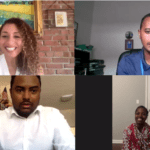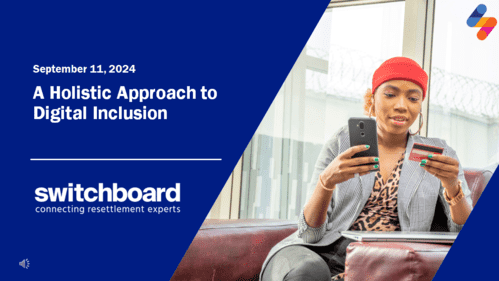Hosted on June 30, 2021, the training was delivered by Isabelle Darling, Clinical Lead, National Partnership for Community Training (NPCT); Fasil Aragaw, Refugee Integration Specialist, Gulf Coast JFCS ; Dr. Tadios Belay, Founder and President, Board of Directors of the U.S. Africa Institute and Angie Uwimana, Interpreter, Gulf Coast JFCS.
Race and racism are difficult topics to discuss with anyone but explaining the complex U.S. dynamics of race and racism to newly arriving refugees is a challenge that many providers feel unprepared for. This panel discussion provided an opportunity for participants to learn how African and African-American community leaders, including former and current refugees, are impacted by U.S.-based racism. The panel discussed the roles that case management, interpretation, community membership, and advocacy play in supporting refugees to address the culture shock, disappointment, and concern about the current state of U.S. racial dynamics. The panelists also discussed how acts of violence against communities of color, police brutality, bias, racism, and structures of inequity weaken the ability of refugees to feel safe and welcomed.
Recognizing that the resettlement agency is typically the initial connection for newly arrived refugees, the panelists explored what has worked for them and ways that resettlement could serve new families with an equity-based approach. Panelists engaged questions from participants to share applicable tips and tools on how providers can support clients as they navigate the complexities of resettling in the United States.
By the end of this webinar, you will be able to:
- Understand how social identities are integral to successful resettlement;
- Describe U.S. immigration history & its impact on the current resettlement process;
- Apply the theory of intersectionality to refugee services; and
- Begin incorporating anti-bias practices into your resettlement services.







